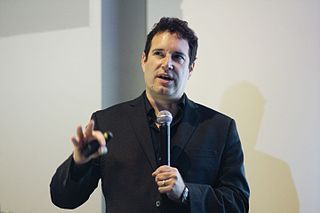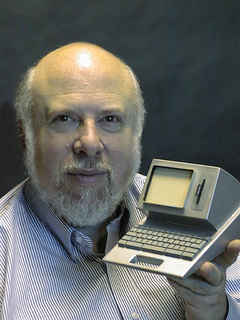A Quote by Tyler Cowen
When humans team up with computers to play chess, the humans who do best are not necessarily the strongest players. They're the ones who are modest and who know when to listen to the computer. Often, what the human adds is knowledge of when the computer needs to look more deeply.
Related Quotes
Chess is one thing, but if we get to the point computers can best humans in the arts-those splendid, millennia-old expressions of the heart and soul of human existence-then why bother existing? to produce human art a computer would have to find, feel, absorb reality to the point it is overcome, to the point it sobs for release. A computer perhaps could replicate every possibility but could never transfer the energy art requires to exist in the first place.
It's a very special generation, because during our careers the computer entered chess. So we know how to play without computers, which is also important. We can analyse without computers. I am not saying that younger players cannot do this, but we are more in the habit of doing this. That's important to improve your chess understanding.
All experiments that are related to the games when you have humans versus machines in the games - whether it's chess or "Go" or any other game - machines will prevail not because they can solve the game. Chess is mathematically unsolvable. But at the end of the day, the machine doesn't have to solve the game. The machine has to win the game. And to win the game, it just has to make fewer mistakes than humans. Which is not that difficult since humans are humans and vulnerable, and we don't have the same steady hand as the computer.
I am confident that we can do better than GUIs because the basic problem with them (and with the Linux and Unix interfaces) is that they ask a human being to do things that we know experimentally humans cannot do well. The question I asked myself is, given everything we know about how the human mind works, could we design a computer and computer software so that we can work with the least confusion and greatest efficiency?
Remember that the machine is there to help you, because at the end of the day, you're not playing freestyle chess, advanced chess, human-plus-machine. If you are playing against other humans, it's about winning the game. The machine will not be assisting you, unless you are cheating of course. And since the machine is not there, you have to make sure that everything you learn from the computer will not badly affect the way you play the real game.
I've never been much of a computer guy at least in terms of playing with computers. Actually until I was about 11 I didn't use a computer for preparing for games at all. I was playing a bit online, was using the chess club mainly. Now, obviously, the computer is an important tool for me preparing for my games.
With both people and computers on the job, computer error can be more quickly tracked down and corrected by people and, conversely, human error can be more quickly corrected by computers. What it amounts to is that nothing serious can happen unless human error and computer error take place simultaneously. And that hardly ever happens.
In a movie, it's often important to have aliens whose gestures and facial expressions can be 'read' by humans. And in the days before sophisticated computer animation, most extraterrestrial bit players were guys in rubber suits. Such practical considerations forced Hollywood's hand when it came to aliens - they look like us for good reasons.




































